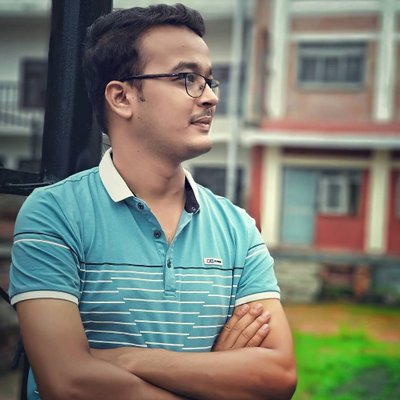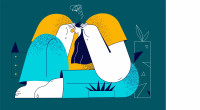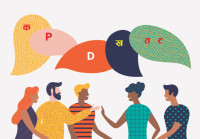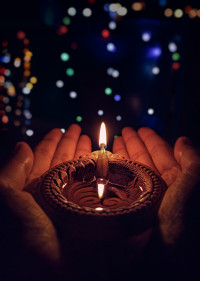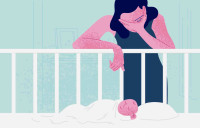As it is
Between the pages—of books and of life
Learning to love books was a slow, torturous process but understanding their perceived lack of value is soul-crushing.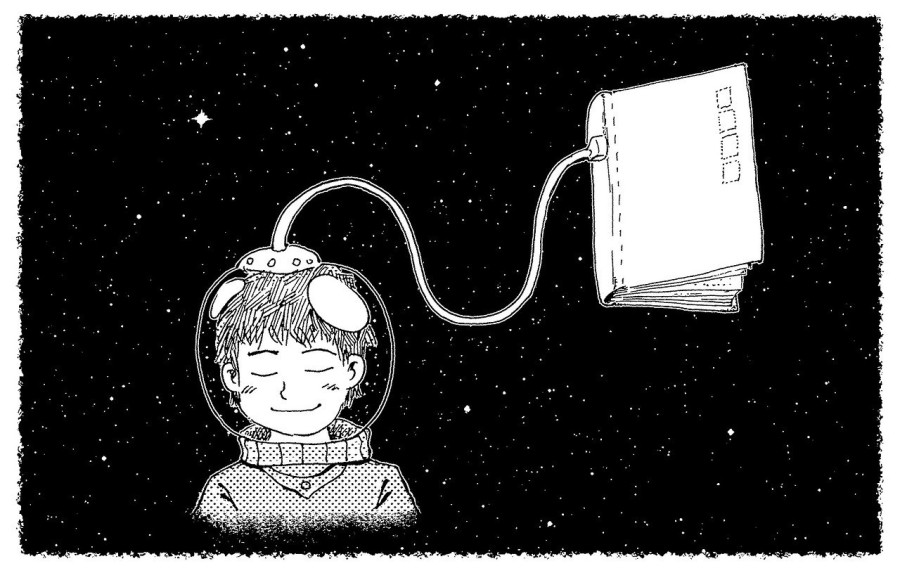
Bibek Adhikari
I have been a book person all my life. If I try finding the genesis of reading, the first impetus, I think it was in high school when I accidentally stumbled onto one of those Chetan Bhagat books and started feeding myself on its pages. It was only after a year or two, I believe I developed some kind of ‘literary taste’ and grew out of cheap potboilers. I cannot tell you what an exciting adventure it was in the beginning—during lonesome nights, pulling books from the rickety shelf, scanning the pages, reading a line over and over again until its meaning got soaked into my bones. My two years of high school were filled with the early memories of reading: cheap commercial trash and mushy poems about love and loss.
It was during my time as an undergrad student that I devoured what is generally known as ‘serious’ literature. Reading the classics was not a joy in the beginning. Unlike the pulp fiction by Indian writers, I could not relate to all those clownish people talking in alien tongues. Brontë sisters, Dickens, and Conrad were a hard nut to crack. Nonetheless, I trudged along, wishing that one day the words in their books would make some sense to me. That painful labouring lasted for about two years—only then I could make sense of what I was reading, but still, I could not relate; I could not find myself in Pip or Heathcliff or Marlow.
I remember marking every page of these hallowed classics, scribbling the meaning, the endless annotations, searching the web over and over again. It was a slow, torturous process. Even then, I would not be able to articulate what I had just finished reading.
Now as I keep wondering about the painful process, I cannot help but blame the early schooling that utterly failed to expose students like me to the rich history of English Literature. Instead, we were force-fed books by vernacular authors, translated and abridged words that were molded to suit the Nepali readers. Not an hour was spent on literature during my school time; under the horror and terror of math and science, the whole schooling shunned and restricted the reading of great books of literature.
This kind of system makes me wonder if I was living in a world as predicted by Ray Bradbury in his most famous sci-fi, Fahrenheit 541. In his world, books are forbidden—they are the sources of dissonance and discontent. People live in conformist hells, surrounded by widescreens mounted on each wall. To read a book, or even to keep one in the house, is to invite destruction. If the state finds someone guilty of this treachery, firemen barge into the houses and burn everything, not sparing the dissidents who defy society by preserving and reading books.
The more I think about it the more I feel I was living in this kind of inferno. Once I was out of that dungeon of a school, I enjoyed my freedom, and the first thing I did was buy a novel from a second-hand bookshop. It must have been one of those cheap romantic thrillers which I devoured in a few hours. The process was repeated over and over again until I made that leap.
I was living alone in Patan, away from my friends and family—loneliness and boredom pulping my brain. It was during that time I picked up Dickens and read about the life and time of the orphan Pip. During the next four years, I would read as many novels and short stories and poetry as possible. From Hawthorne to Chopin to Kafka to Joyce to Camus, I wolfed down hundreds of books, not understanding the whole thing, not being able to connect the words to the larger world. Sometimes, I read a book a day, and by the end of the month, I’d confuse the plot, alter the heart-wrenching climax, and forget the sudden denouement.
But there came a time when I stopped reading altogether. With much shame and a tinge of remorse, I recall the day when I exchanged 10 kilos of books with 10 kilos of potatoes. After that incident, reading became an infrequent diversion from the humdrum life. Failing to become a published author even after six years of constant struggle, I stopped picking up books and refused to lose myself in its dreamlike fictional world. Reading carried no meaning; there was no utilitarian advantage of it—I was still ill-fed and ill-clothed, tutoring students and barely managing to pay the bills. Reading brought home no money, not even an ounce of happiness. My family wanted me to stop chasing illusions and do something productive. They saw no future in my idle pursuit. My mother once remarked that ‘reading novels would rot [my] brain.’ Only the aimless slackers wasted their hours away by picking up a book and daydreaming into it.
When you have schools like the one I went to, or families like I was born in, or the communities like I grew up, you don’t need people like Beatty, the Fire Chief from Fahrenheit 451, to burn the books. The former will gladly and proudly do the job for you without matches or fire. From mothers complaining about ‘too many books in the house’ to fathers worrying about your future and dismissing your love of literature with Oscar Wilde’s flamboyant aphorism—‘all art is quite useless’—you are surrounded by circumstances that will let you down, make you feel dismal, and crush your dying dregs of hope of picking up a yet another book.
No matter how much I struggle to satiate my appetite for reading, the love and hate relationship is still there. There are days when I read continuously for sixteen hours, and there are months when I don’t even turn a page. In between reading and not reading, I turn one of my mother’s sayings—‘rich people have souvenirs of their travels in their houses; poor people, the books’—over and over again in my mind until I am crushed by the impending guilt of being born poor or allowing myself to be poor by reading and scribbling and daydreaming.
“All is not lost, of course,” Bradbury writes, “if every child in every country stays in libraries to learn, almost by osmosis.” But the question is, will our non-reader families, non-learner schools, and non-knowers communities allow this digression?




 22.65°C Kathmandu
22.65°C Kathmandu